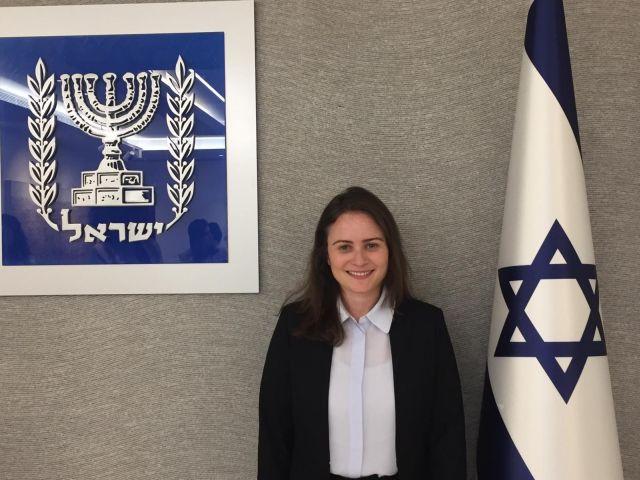The first week of January 2021 was exciting for me – my dad was recovering, he was discharged from the hospital and received his first covid-19 vaccination shot. It was a great week for me and my family. After some days, he received the second vaccination shot. I now heave a sigh of relief and stop myself from worrying about him.

The first week of January 2021 was exciting for me – my dad was recovering, he was discharged from the hospital and received his first covid-19 vaccination shot. It was a great week for me and my family. After some days, he received the second vaccination shot. I now heave a sigh of relief and stop myself from worrying about him.
Coronavirus knows no borders, as it has become clear, and countries over the world are facing the same challenges with regards to their public health and economic management. From the onset of the pandemic, Israel emerged as a leading nation in the global fight against coronavirus, learning from the experiences of others and sharing its own with the world. It made tough decisions such as – closing borders and schools, shuttering businesses, and limiting all non-essential activities. Israel also developed a lot of sustainable innovations in the fight against the pandemic that included start-ups and drive-through testing centers through to telemedicine and vaccine research.
Israel’s success in responding to the pandemic has continued into 2021, and the country can boast of the highest per capita vaccination rate of any country in the world. Israel began its vaccination drive in late December 2020, and within the first two days of the campaign, nearly 30,000 Israelis were already given their first dose. Now, a few weeks later, over 3 million Israelis have received their vaccination shot, and the country is on track to vaccinate all citizens over the age of 16 by the end of March.
This speedy and ambitious target has been made possible through a new deal that Israel made with pharmaceutical companies in early January. Dubbed ‘Operation Back to Life’, Israel is set to receive ongoing shipments of the vaccine over the coming months, which will enable the country to reach its bold target and become one of the first countries in the world to exit from the coronavirus crisis. Moreover, by sharing its statistical data with Pfizer and the world, Israel will also play a key role in demonstrating the efficacy of the vaccine and developing global strategies to overcome the pandemic.
In 2020, the State of Israel through its embassy in Accra supported the Ministry of Health in many ways to fight against the pandemic. The beginning of the pandemic was characterised with an emergency support, mainly PPEs that were donated to health facilities. Later, when Ghana proved its high resilience, we supported the local production of PPEs produced by Israeli knowledge. 2,000 face shields were printed by the Accra Digital Center with 3D printers according to Israeli open protocol.
The next step in the evolution of the Israeli contribution to the Ghanaian and African healthcare was much more dramatic. In the next few weeks, the first group of Ghanaians will be vaccinated in Israel. Two weeks ago, Israel began to vaccinate foreign diplomats in the country, and soon all of them will be vaccinated. This means that some of the foreign diplomats in Israel will be the first citizens of their countries to be vaccinated. My colleagues in the Embassy of Ghana in Israel will be part of them.
Apart from this generous decision, there is also a scientific impact of the Israeli high pace vaccination. Israel's small population of some nine million and its highly efficient public health system mean that the country is going to play an essential role for pharmaceutical companies. The success and experience of our vaccination campaign will be used to provide the critical information that pharmaceutical companies need in order to make the vaccine even more effective for other countries, including Ghana. By being the first country in the world to vaccinate its entire population with the novel vaccine, Israel will serve as the world's key experimental subject.
Israeli scientists are also working on creating an Israeli vaccine. According to current estimations, it will be ready for safe use by July 2021 and then will be available for Israel’s allies around the world, Ghana among them. The Israeli vaccine will be given in one shot, and apparently will be kept at refrigerator temperature therefore, it will be a lot more durable for transfer and more suitable to the environmental conditions of Africa.
Israel’s universal healthcare system is globally recognized for its efficiency and effectiveness. Israel has developed a sophisticated and high-quality level of individual patient care, and all Israeli citizens and permanent residents are guaranteed healthcare under the country’s National Health Insurance Law. All Israelis can choose from four comprehensive not-for-profit health plans that provide a standardized basket of medical services, and each provider must accept all residents regardless of age or state of health. Combined, there are thousands of clinics spread across the country, ensuring that each and every local community is served. Moreover, its national healthcare services enjoy a uniquely advanced level of digitization, which will make Israel's data particularly important to pharmaceutical companies. Israel's extensive national network of medical services lies within the Ministry of Health’s purview.
With these extraordinary efforts, it is Israel’s hope that on this year’s Passover night, which will be celebrated late March, grandparents, parents, children, and grandchildren will be able to gather around the table once again. Who knows, maybe since my parents will be already vaccinated, they can join me in Ghana to celebrate Passover with us in Accra.
By Shani Rapaport Etsiony,
Deputy Chief of Mission,
Embassy of Israel to Ghana, Liberia and Sierra Leone.
